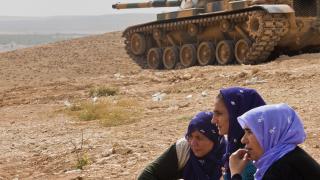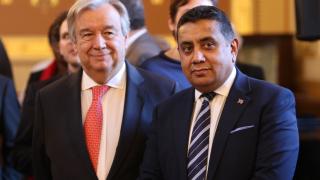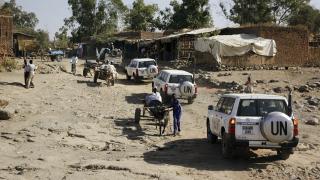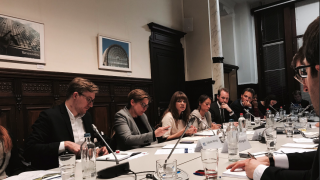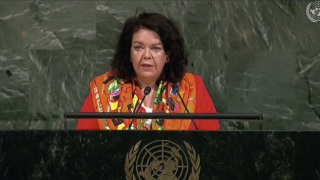
On 25 June the UN General Assembly (UNGA) met to debate the Responsibility to Protect (R2P) - the prevention of genocide, war crimes, ethnic cleansing and crimes against humanity. This was the Assembly's first formal discussion of R2P since 2009.
In his opening remarks to the Assembly, the UN Secretary-General, António Guterres, drew attention to his latest report on the “Responsibility to Protect: From Early Warning to Early Action” in which he proposes steps that states can take to strengthen national capacities to prevent atrocities.
UNA-UK strongly support his recommendations, and expressed our hope to the UK mission to the UN that they would too. They include:
- Increasing the capacity and ability of civil society to enhance early warning, reduce risk factors and work on protection and prevention
- For the UN Human Rights systems, in particular the Human Rights Council, to be more closely integrated into the work of atrocity prevention and for the Human Rights up Front (HRuF) initiative to be used to strengthen the capacity of the United Nations system to prevent serious human rights violations
- For the General Assembly to act when “the Security Council fails to act”. The Secretary-General suggested that it “should consider the options set out in the Charter to include situations of concern on its agenda and recommend measures that could be taken”.
In his remarks, the Secretary‑General stressed that atrocity crimes were not “inevitable” and urged that the international community must do more to end violence against innocent people. He also took the opportunity to call on Member States to ratify the instruments of international law, highlighting that 45 States had not yet ratified the Convention on the Prevention and Punishment of the Crime of Genocide.
The UK ambassador to the UN, Karen Pierce, represented the UK during the dialogue. Ms. Pierce reaffirmed the UK’s commitment to R2P, adding that the UK welcomed the inclusion of R2P on the UN GA’s formal agenda. Commenting on the responsibility states have towards their populations (the first "pillar" of R2P) Ms. Pierce underscored that national ownership of R2P was important, but that it did not enable states to mistreat their own populations. She pointed to the fundamental "tension" arising when Member States were unable or unwilling to shine a light on internal persecution and discrimination, increasing the likelihood of a bigger crisis. This tension does not receive enough attention within the General Assembly.
The UK ambassador welcomed the Secretary-General’s assessment that there needs to be a more systematic approach across the UN to information gathering, assessments of risks and collective analysis. Highlighting that the UN Special Advisors on Genocide Prevention and R2P had important roles to play in bringing such risks to the attention of the Security Council, Ms. Pierce expressed hope that the position of the Special Adviser on R2P would be filled soon (Mr Ivan Šimonović, who previously held the role, stood down on April 1 and has not yet been replaced). She congratulated the Secretary-General for his work on mediation, adding that it had made important contribution to prevention and stressing the key role of women in these processes.
Ms. Pierce stressed that “‘never again’ needs to really mean something,” stating that if countries did not want the international community to engage with them then they must protect their own populations to the standards expected by the United Nations.
The discussion takes place at a critical time for the development of R2P as a global norm. Protracted crises in Syria, Yemen, and Myanmar have seen member states fail to demonstrate willingness or ability to prevent atrocities, and the withdrawal of the United States from multilateral forums places the systems for doing so under greater strain.
UNA-UK welcomes the UK’s reaffirmed commitment to R2P but would like to see the government translate its rhetorical commitment into practice. UNA-UK, alongside other organisations working in the field, have been campaigning for a comprehensive UK strategy for the prevention of atrocities.
Our recommendations to the British government:
- Develop a strategy for preventing atrocities which would detail precisely what measures and indicators would lead the R2P Focal Point to declare that there is an imminent risk of atrocity crimes occurring in any given country and what mechanisms and actions this would trigger.
- Elevate the role of R2P Focal Point to ministerial level
- Champion the doctrine of R2P across Government, using atrocity prevention as a ‘lens’ to analyse policy in all areas including within peacekeeping, arms export policy and immigration and asylum policy
You can read more about our work on atrocity prevention here.
Photo: UK ambassador Karen Pierce addresses the General Assembly at the session. UN Photo.



